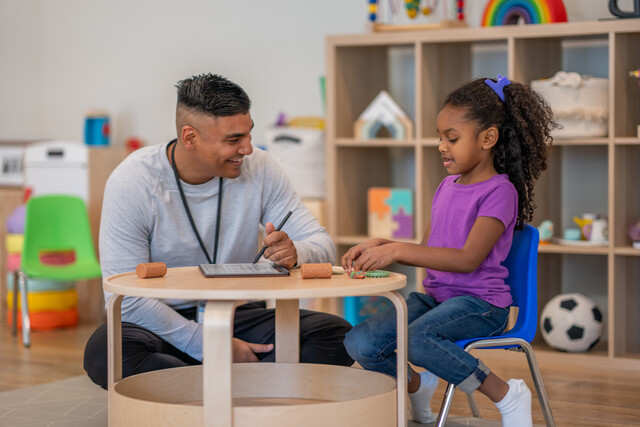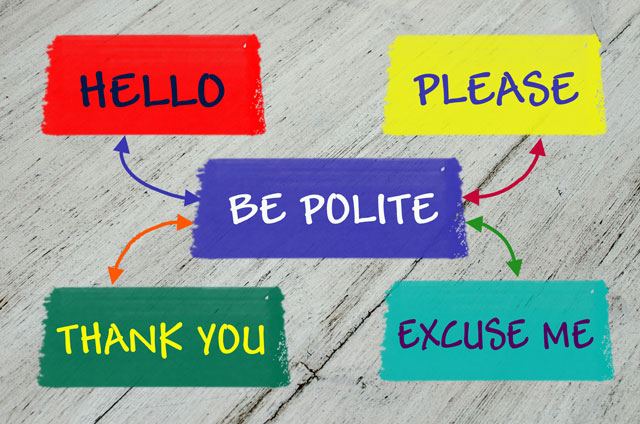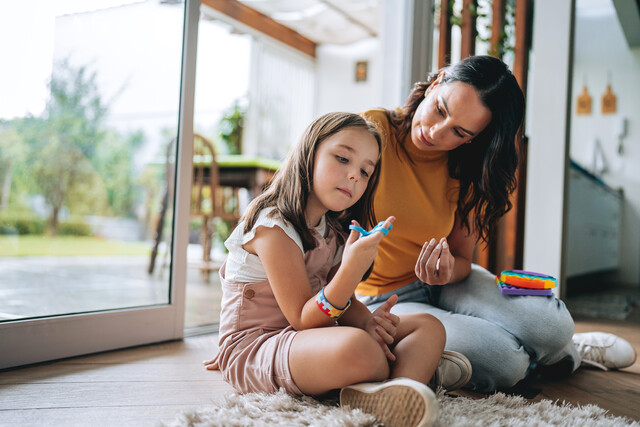Challenges
Not Quickly Seeing Results
Positive parenting isn't instant. It may take time to see results. It's not that different from other aspects of your life where you've decided to learn something new or make a big change. If you want to learn to play the piano, you won't be playing well for a while. If you start a diet, it will take time for the weight to begin to come off. However, just as with these examples, success in using positive parenting will come more quickly when you're committed, focused, engage in all the best actions, and practice.
You will want to be prepared that your children may resist. They might feel unsure, and therefore anxious, about what this new approach is all about. Perhaps they've been allowed to rule the roost. They won't easily give up this power. However, over time, because positive parenting is founded on children truly and authentically thriving, they will become invested once they experience a closer and more healthy relationship with you, get positively reinforced for desirable behaviors, and begin to really enjoy you seeing and treating them as unique and competent individuals.
Along the way, though, you will almost certainly have times when you occasionally backslide, especially in the beginning. Perhaps you end up yelling at your kids after a bad day at work, or you don't follow through on a consequence. Don't be too hard on yourself. Use it as a learning experience and commit to doing better. Tell your kids this, too. You will model for them that sometimes this happens, but the important thing is to go forward and do better.
Just remember that people -- adults and children, both -- find comfort in the familiar. This is even if it isn't in their best interest. To be successful at positive parenting takes pushing through this and building momentum. One great way to maintain your motivation is to keep a journal. Each day or so, write down what worked, what didn't, how you felt, and what you plan to do going forward. Remember to celebrate your successes. If you've had a week of peaceful dinners, pour glasses of sparkling cider and make a toast to everyone's awesomeness!
Not Having Support
You may have to face the situation that other important adults in your life do not support you in practicing positive parenting. The most difficult of these will most likely be if this is your primary parenting partner. But this could be your children's grandparents. It could be your siblings. Perhaps your friends. It might be your babysitter or nanny.
These people may think things are just fine the way they are. Or while they may be open to doing something different, they mistakenly believe positive parenting is letting kids get away with anything or never feeling annoyed with them, so they veto going with positive parenting. They may think it's just a fad. You may have the situation where your partner says they're on board, but then is inconsistent or only implements some of the practices.
This roadblock can show up in a number of ways. One is that the person is very vocal, direct, and may be quite negative and critical. Another is that the person is very vocal and negative, but indirect. Instead, they make hurtful and sarcastic comments, often disguised as humor. It can be action-based as well. There can be eye rolling, heavy sighing, head shaking -- as though they can't believe you're doing this, and the like. Another way lack of support can be based on actions is by undermining; this is essentially being passive-aggressive. The person may purposefully be inconsistent or only do some elements. Or they may half-heartedly try and once they fail, use this to point out to you that positive parenting doesn't work.
If the person doesn't have direct caretaking responsibilities for your child, then, even if difficult, you can simply ignore them and go the route of "actions speak louder than words." Start practicing positive parenting in full. As the positive results pour in, hopefully they will see the value. They may even approach you to learn more about how they can use positive parenting. But even if they don't, you and your children have those benefits, and that's what really counts. After all, this is likely why you started using the approach in the first place!
For those people who do spend a great deal of time with your child, how you handle this lack of support may vary. If it is your primary parenting partner, then the best advice is to try to get them to learn about positive parenting from reputable sources. The resources listed at the end of this article, are great starting points. Another important source to consider is other parents your partner knows and respects, who practice positive parenting. Facilitating a conversation might be the tipping point for them to consider learning more and getting on board with you.
If it is a family member or friend who cares for your child, make the determination of how important it is to really push. If your child spends every weekday or most weekends with them, then the stakes are much higher than if it just very occasionally, or for very short periods of time.
If this person is a nanny or a babysitter you will have to directly address this with them. Positive parenting is as much a mindset as a set of tools, so it may not work to think of it as strictly a skill needed for the job. On the other hand, sometimes practicing leads to changes in our mindset. If they are at least somewhat open to the idea, make it a joint experience. Work together, dialogue, and praise their efforts and celebrate results. However, if this person cannot get on board with you, you may have to make the decision to replace them.
Dealing With Major Life Events
In life, most of us face many major events. Some of these are typically considered positive, like a great new job or house, new baby, or a marriage or remarriage. Sometimes, however, they are perceived as negative -- such as job loss, divorce, major illness, or the death of someone close to us. Even events we perceive as positive (and this is in the eye of the beholder), but more certainly those considered negative, can cause the family to struggle and falter.
These stressors can become a challenge to starting or continuing using positive parenting. They can make staying calm, cool, and collected hard. You may feel anxious. These life events can make it difficult for you to keep your spirits up. You may have more responsibilities that could be financial, emotional, and/or physical-all of which deplete your energy. Children feel these effects as well. This can show up in their moods and behavior. This can compound the challenge for you to practice positive parenting.
When dealing with major life events, whether positive or negative, that seem to impact using positive parenting, it's important to try to determine the degree to which this is happening, and in what specific ways. Perhaps you will see that while it feels you are slipping across the board, it's really not that pervasive. Using your journal, which we discussed earlier, can help you determine this.
You may also discover this is the time you need to find someone to support you who understands and can help keep the practices of positive parenting going while you get your footing back. This could be a family member, a friend, a neighbor, or a professional.
Media and Peer Pressure
There are two other areas, which are external forces that also represent a challenge and undermine positive parenting efforts. These are the media and peer pressure. There is some crossover, as well, between these.
The media is a force to be reckoned with. It not only influences our children, it influences us, as well. The media comes through in many ways and this is just going to increase. Media comes through television, which is still the main access for kids, and through films, music, print, and social media. Social media is especially the place where the variations just keep on coming.
Many of these messages to kids are about being "cool." This inevitably means pushing the envelope. Beginning at a very young age, our children are bombarded with messages that to be cool and fit in with their peers they need to be sassy, sexy, and disengaged with the current expectations of authority-that's parents, but it's also teachers, coaches, religious leaders, etc.
It's not that this is new. Every generation goes through this, but the venues for messages are now so much more prevalent and the level has gotten higher and higher. Children and teens see a huge amount of violence, use of alcohol and drugs, body images that are computer-altered to be physically impossible, clothing that is extremely revealing, and the hyper-sexualization of girls in particular. The popular child characters in film and TV are portrayed as hip and cool because they are "smarter" than adults, especially their parents.
Kids take these messages in and alter their behavior to fit them. Many of the kids leading the way are those who are popular themselves. Getting and remaining popular is hard work for kids by the way. They have to keep themselves in the limelight and this can mean engaging in more and more risk behavior to do so. They need others to admire and follow them and this is where peer pressure comes in.
Parents are also not immune to pressure from their peer group. There has been sharp rise in blogs and videos devoted entirely to making fun of parenting experts, to a snarky or snide outlook on parenting, or to showing parents as overwhelmed and just needing to get away from the kids. This can make it seem as though parenting in a positive coherent, thoughtful, intentional, and engaged way is not needed or makes you ‘uncool' as a parent.
It's unrealistic to believe keeping your children and yourself away from all media is a solution. It's simply too pervasive and it doesn't give you an opportunity to use these messages as teachable moments. However, you can make choices and put limits on media that is particularly offensive. Being aware of the messages your children and you are exposed to and the situations in which peer pressure is operating is the first step. Then taking the time to have ongoing dialogue and developing strategies together about how to handle these influences is critical.
These are some of the known and most common challenges to practicing positive parenting. You may face others, but the key is to take a deep breath (or many!) and strive to stay on track.
Putting It All Together
Parenting is a process and practicing positive parenting is no different. One analogy of a parent is that of a carpenter. A carpenter needs well-made tools. He needs the knowledge and expertise to use them. She needs to understand the properties and nuances of the materials. She needs a vision of the finished product, but must be meticulous along the way with attention to detail to achieve that goal. He must be able to create an environment that supports his work. She must expect she will make mistakes, that the tools might occasionally fail, or the materials will not cooperate, but she must be able to overcome all of these. When all of these come together, the result is that the carpenter has built something amazing. Something that will last. Something that will bring great personal satisfaction. Something that will bring joy to others.
In practicing positive parenting, we've covered the tools, skills, environment, and mindset you need to support your child being amazing. Let's recap…
Positive parenting is an approach to raising children that supports and promotes their natural capacities by guiding and teaching children with acceptance, encouragement, skill building, and appropriate limits and consequences.
The positive parenting approach is informed by valid and reliable research and practices that come from positive psychology, parenting styles, attachment theory, child guidance, behaviorism, social learning theory, and child development. This research has been published in academic journals and tested in many parenting interventions. Each of these influences provides important elements to help parents raise children to have the best opportunity for optimal development.
The major elements that combine to create positive parenting are…
An understanding of child development. This knowledge will give you invaluable insight into your child. While children have a strong natural tendency to learn and become competent, the childrearing environment has an equally strong impact on the degree to which this happens. A solid knowledge of child development by parents is vital for supporting these optimal outcomes.
A close, healthy parent-child relationship. This is both what supports positive parenting and represents the outcome of positive parenting. It is the relationship with our child that is most central to our becoming a parent in the first place. Close and healthy parent-child relationships are essential for children to have the most optimal outcomes. Positive parenting is related to establishing such a relationship through being warm, sensitive, and responsive to one's child. This allows children to get their evolving needs met as they move through the developmental periods.
Being able to effectively guide your child's behavior. Socializing children well is among the greatest gifts you can give them as a parent, but it does take work on your part. Automatic habits, like paying more attention to misbehavior, and using the same familiar ways of dealing with that behavior, can be hard to break. To effectively guide behavior means thinking it through. Really looking at how behavior changes in your child after you've addressed it will tell you a great deal. It may take some time to get it right, but setting fair limits, using both natural and logical consequences over punishment, and "catching" your child doing great will pay off!
Promoting your child's emotional intelligence. At our core, our emotional life is what most strongly determines how much joy and satisfaction we derive from life. Growing your child's emotional intelligence is a major aspect of positive parenting. It has wide-reaching benefits. Children with emotional intelligence experience a wider range of emotions. They have healthier relationships with adults and peers. They are more skilled at controlling impulses and delaying gratification. They have better cognitive control, like attention, which helps them in school. Such children are more adept at self-motivating. They are able to calm themselves down. They speak up for themselves and have better self-esteem. All around, emotional intelligence simply helps children cope better with the inevitable ups and downs of life. And along the way your emotional intelligence will rise and you'll get great benefits, too!
Strengthening your child's cognitive abilities and education. Our ability to think, to speak, and to create is so uniquely human. Children have an enormous capacity to learn and if done well they also have an enormous capacity to enjoy learning. Parents can support this by ensuring they have a strong foundation of the basics and then guiding them to higher-order thinking through understanding techniques like scaffolding and providing deep, thoughtful questions. In this way children will be better prepared to succeed and thrive in the 21st century.
Taking responsibility for creating a supportive environment for positive parenting. Our children look to and rely on us to raise them. When we create an environment which brings out the best of us in our role as parents, everyone wins. Being organized and having routines, making conscious decisions about what behaviors in your children you can ignore, being in control of your own emotions and actions, better understanding children's motivations and needs, and committing to healthy family communication will give you a head start and set you up for positive parenting success.
The benefits received from practicing positive parenting are far-reaching and very rewarding…
-
The interactions between parents and children become more pleasant and peaceful.
-
Children learn to understand and self-manage their thoughts, emotions, and behavior.
-
Children are taught the skills needed to be successful in society.
-
Children gain a strong, healthy sense-of-self by feeling competent and accepted.




























